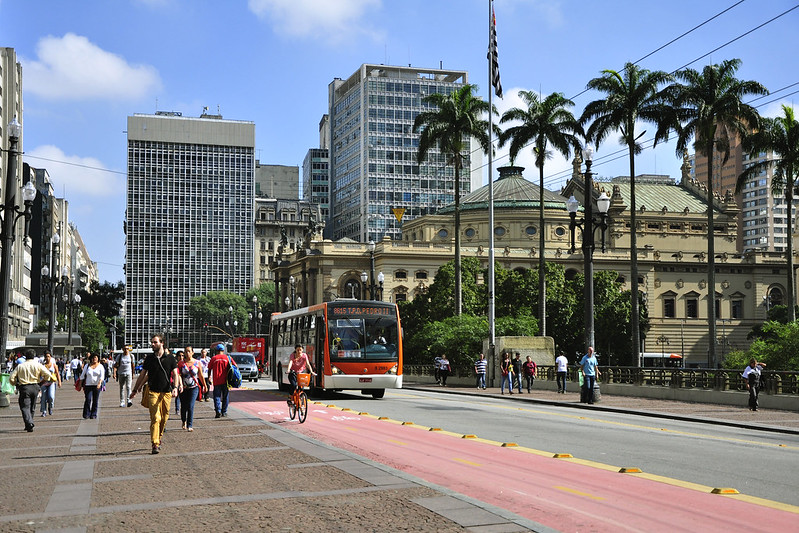Fast Start for Zero Emission Bus Partnership in Latin America

Publication Date
2019-02-08
About
The vision of electric buses transporting the residents of Latin America’s largest cities is gaining measurable momentum. Already, there are more than 100 electric buses on the road in Santiago, Chile’s largest city, as part of a private initiative between electric utility Enel and bus operator Metbus. An additional 100 electric buses will hit the streets in early March as part of an arrangement between electric utility Engie and two bus operators, STP Santiago and Buses Vule. TranSantiago, the public provider of bus services in this capital city of more than 6 million residents, aims to replace approximately 500 diesel buses with electric buses when it releases its next new bus tender.
The Zero Emission Bus Rapid-Deployment Accelerator (ZEBRA), a 2018 P4G Partnership led by the International Council on Clean Transportation and C40 Cities, is working to support municipalities in the region to increase their deployment of electric buses, which can lead to cleaner air in heavily congested cities and a reduction carbon emissions that contribute to global warming.
While Santiago has the region’s largest electric bus fleet, other cities are making plans for future deployments, according to Ray Minjares, who leads the program for clean air at ICCT. ZEBRA partners have seen success in Medellín, Colombia, where the city issued in December 2018 a successful tender for 64 battery electric buses to be deployed by mid-2019. The City of Medellín has committed itself to shift to zero emission bus purchases by 2030. A prototype of the new electric buses will be ready by early April. In addition, the City of Sao Paulo has opened bids on the renovation if its fleet, the largest in Latin America. Sao Paulo has a climate law adopted in early 2018 that requires a 100 percent shift away from fossil diesel buses. ZEBRA partners are supporting city officials with strategies to bring zero emission buses into the fleet and ensure compliance with the climate law.
